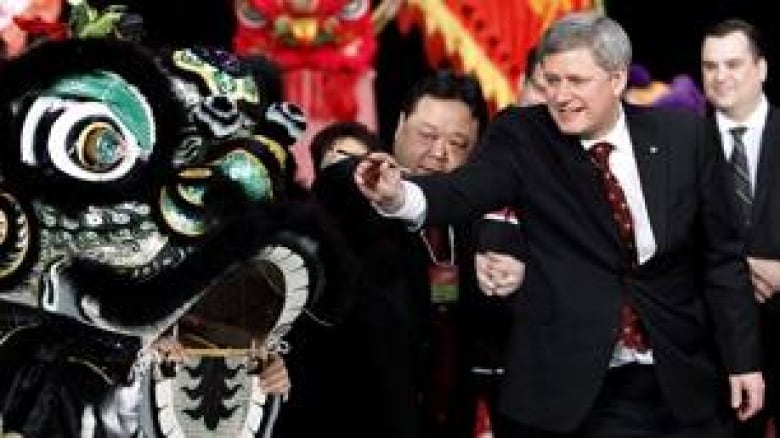Immigrants key to next election: political experts

All three of the major national parties are developing aggressive strategies to reach foreign-born Canadians, in the belief that immigrant voters hold the key to power in the next election, political experts say.
"This is going to be at the core of the next election," said social scientist Keith Banting of Queen's University school of policy studies in Kingston, Ont.
Statistics Canada projects that by 2031 almost half of Canadians over the age of 15 will be foreign-born or have at least one foreign-born parent, and the number of visible minorities will likely double by then. Almost all of them will be living in cities, primarily Toronto, Vancouver and Montreal.
"It's a slow-motion redrawing of the political map," said pollster Allan Gregg, chairman of Harris-Decima Research.
Growing immigrant populations are fertile ground for the major political parties, especially because the Liberals' traditional lock on ethnic communities has been broken.
In the last election, the Liberals saw their grip slip, mainly to the benefit of Conservatives in suburban areas.
Conservatives made their biggest gains in ridings known for their large populations of visible minorities, Gregg says.
"What's happened with the Liberal party is they had such a dominant position with the new-arrival community that they took it for granted that nothing was changing," Gregg said. "They were asleep at the switch. They didn't realize how different immigration was."
The Liberals relied on a stronghold of European immigrants that dominated the flow to Canada in previous decades. But now, the flow of newcomers is mainly Asian — visible minorities with different values than the previous generation.
The South Asian population is expected to at least double to between 3.2 million and 4.1 million within 20 years, Statistics Canada said. The Chinese population is expected to grow to between 2.4 million and four million, up from 1.3 million.
And now, with an eye on the next election not to mention the longer term, the Conservatives are ramping up their efforts.
Different strategies
Immigration Minister Jason Kenney rarely passes up an opportunity to attend a cultural event or talk to a journalist from the ethnic media.

Backed by a large communications team and plenty of funding, their pitch is to appeal to the "small-c" conservative values among the small business owners and the tightly knit families they believe characterize many ethnic groups that have revolutionized Canadian suburbs.
Generally, the Conservative agenda of law and order, entrepreneurship and strong family values resonates to a certain extent, Gregg says.
But he says the Conservatives are walking a fine line with their courtship by appealing directly to ethnicity, since many immigrants don't define themselves primarily by their cultural identity.
That's why the Liberals say they take a different approach. They are quietly alarmed at the erosion of immigrant support they have always counted on, but say they're convinced their vision of a brighter future for Canada is something that has broad appeal for immigrants and long-time Canadians alike.
"The whole action of reaching out to ethno-cultural communities has to change," said Liberal MP Maurizio Bevilacqua, whose Toronto-area riding is a tapestry of ethnicity. "It's not just about going to the local festivities. People have concerns that go beyond their cultural existence. They care about health care, debt, the future of their children."
Especially as immigrant populations become synonymous with mainstream Canada, it's condescending to appeal simply to ethnicity, he said.
Indeed, as an election draws closer, Liberals suggest they won't hesitate to make an issue of the Conservative efforts to focus on race.
But Tory strategists are not only the Liberals' concern. The New Democratic Party has formed a task force to explore electoral inroads, named Vancouver-area MP Peter Julian to lead an outreach effort, and hired a point-person to handle ethnic media.
Like the Liberals, the NDP's pitch focuses on the need to create jobs, stabilize the country's social safety net and take care of the elderly.